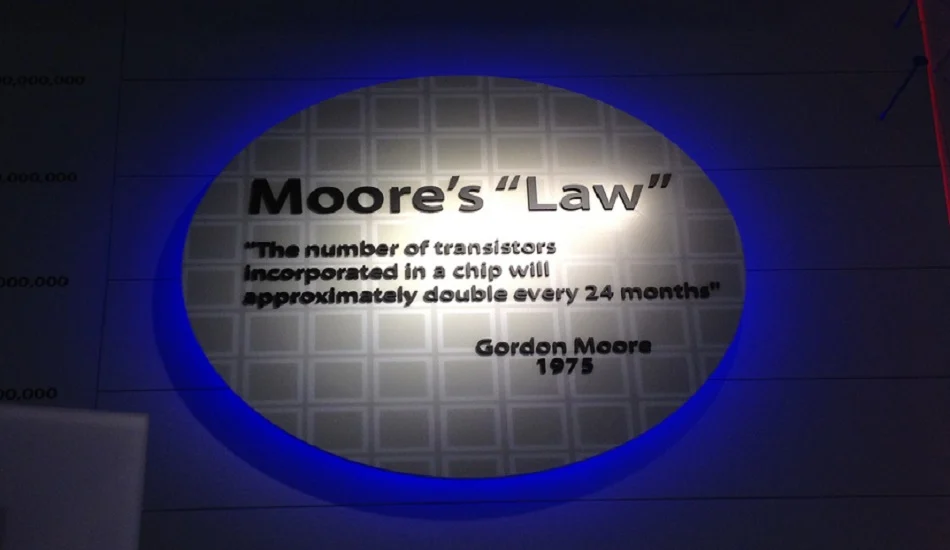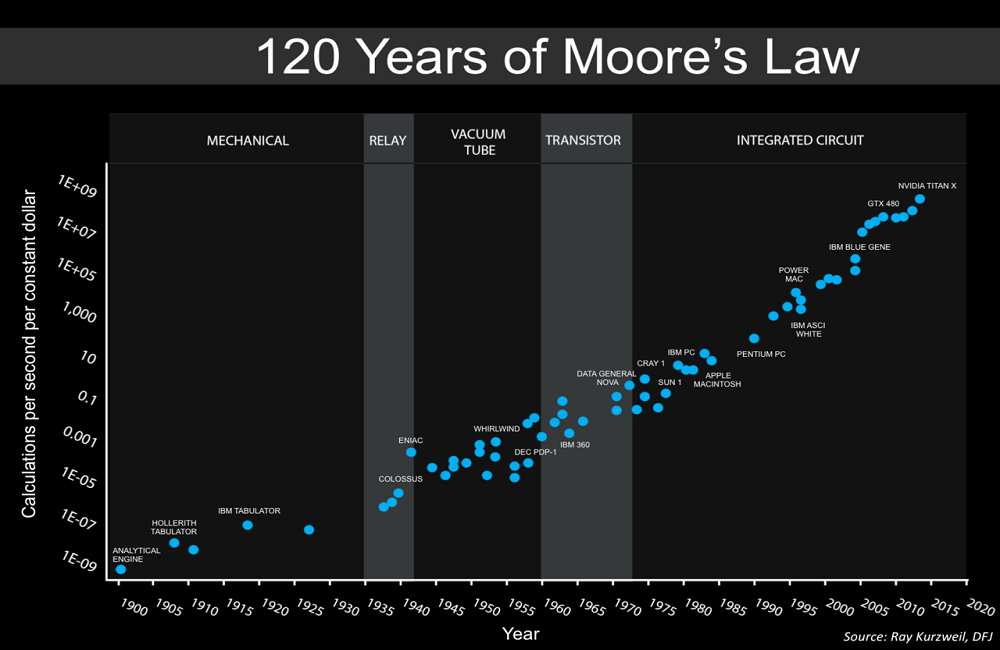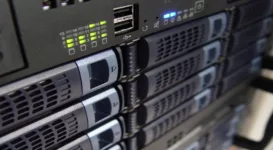We produce 2.5 Exabyte of data daily. To realize the quantity, here is a metaphor: the Amazon forest has at least 390 billion trees. Let’s say, we cut all the trees and turn them into paper. Then we write on both sides of all that paper, which will give us only 1 Exabyte of data. (Source: Northeastern University)
The expansion of data is based on these three tenets: speed, variety and volume. Every minute, 3.2 billion Internet users connect to the Internet, that’s (volume). Some 350,000 people send out tweets, 4.2 million likes happen on Facebook every minute, that’s all (speed). More than 3,000 billion searches take place on Google in a single year – making it the largest library of the human psyche. Not to mention the data generated by the connected objects, nor the data generated by other platforms, intelligence agencies across the globe, and many more, and that’s (variety).
Is this the perpetual nature of Moore’s Law?

Conventional computers cannot process all this data. And as we have just seen, the data continues to grow. Moore’s law, which predicts the doubling of the number of transistors on integrated circuits every two years, is increasingly being discussed. Indeed, today, these transistors are now as small as possible, to the size of the atom. That is why there is a race of the greatest leaders in the industry to be the first to launch a viable quantum computer. As a result, quantum computers would be exponentially more powerful to process all the data we generate each day and solve increasingly complex problems.

It’s like the word processing programs on our computers. If you want more words on a small space, all you do is to reduce the font size. That’s basically what Moore’s law does – reducing the font-size of circuits. This is surely going to increase the exponential power of computers and enable us solve more difficult tasks in the future.
Quantum computers – complex problems – and the Quantum Language
At present, the largest calculator is Chinese. It is capable of making 92 million billions (92 Peta-flops) of calculations per second. The issue is big because if a company can design a commercially viable quantum computer, then it is quite possible that these quantum computers can calculate in a few seconds what a standard computer would take 1000 years.
Today, Google has a quantum computer which is claimed to be 100 million times faster than any system today. It is clear that if we can deal with the monumental amount of data we generate, we will solve very complex problems. The key to success is to translate our real world problems into quantum language. That’s the secret lies in marrying our real world issues and the quantum language.
One of the objectives of artificial intelligence is to sort and qualify the data. The complexity and size of our datasets is growing faster than our IT resources. While conventional computers are struggling to solve certain problems, these same problems should be solved in a few seconds thanks to the power of quantum computation. It is predicted that artificial intelligence, and particularly machine learning, can benefit from advances in quantum computer technology. And we hopefully wait to see how these can come together to make a better world.
Will Quantum Computing recolonize our current systems?
The quantum computer will be able to optimize processes and improve the efficiency of services. For example, it will help medical professionals to determine a medical treatment more precisely according to the individual specificities.
For instance, the cost of genomic analysis was divided by 100,000 in 10 years. The sequencing of the genome of a single person represents 22TB of data (tera-byte or 22,000 billion bytes). It is easy to imagine the significant advances in genomics and the competitive advantage that a laboratory with such a technology could have over its competitors. However, with competition aside, if the entire medical field is able to make use of this technology, that will be good for the entire human race.
By 2017, our IT architecture is no longer adapted to the growth of data. It is necessary to have a different approach to treat them. Not only is its scope greater, but the problems we are trying to solve are very different. Quantum computers will be the equipment to effectively solve current problems; in terms of health, metrology, pollution, Artificial Intelligence, Agriculture, and the likes.
Sources: Northeastern University , Google Research Blog








